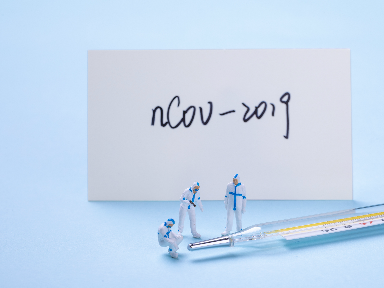firstwordpharmaJuly 05, 2021
Tag: COVID-19 , SARS-CoV-2 , Vaccine
Researchers at the Francis Crick Institute and University of Dundee have screened thousands of drug and chemical molecules and identified a range of potential antivirals that could be developed into new treatments for COVID-19 or in preparation for future coronavirus outbreaks.
While COVID-19 vaccines are being rolled out, there are still few drug options that can be used to treat patients with the virus, to reduce symptoms and speed up recovery time. These treatments are especially important for groups where the vaccines are less effective, such as some patients with blood cancers.
In a series of seven papers, published today (2 July) in the Biochemical Journal, the scientists identified 15 molecules which inhibit the growth of SARS-CoV-2 by blocking different enzymes involved in its replication.
The researchers developed and ran tests for around 5,000 molecules provided by the Crick's High Throughput Screening team to see if any of these effectively blocked the functioning of any of seven SARS-CoV-2 enzymes. The tests were based on fluorescent changes with a special imaging tool detecting if enzymes had been affected.

They then validated and tested the potential inhibitors against SARS-CoV-2 in the lab, to determine if they effectively slowed viral growth. The team found at least one inhibitor for all seven enzymes.
Three of the molecules identified are existing drugs, used to treat other diseases. Lomeguatrib is used in melanoma and has few side-effects, suramin is a treatment for African sleeping sickness and river blindness and trifluperidol is used in cases of mania and schizophrenia. As there is existing safety data on these drugs, it may be possible to more quickly develop these into SARS-CoV-2 antivirals.
John Diffley, lead author of the papers and associate research director and head of the Chromosome Replication Laboratory at the Crick, said: "We've developed a chemical toolbox of information about potential new COVID-19 drugs. We hope this attracts attention from scientists with the drug development and clinical expertise needed to test these further, and ultimately see if any could become safe and effective treatments for COVID-19 patients."
The 15 molecules were also tested in combination with remdesivir, an antiviral being used to treat patients with COVID-19. Four of these, all which target the SARS-CoV-2 enzyme Nsp14 mRNA Cap methyltransferase, were found to improve the effectiveness of this antiviral in lab tests.
The scientists now plan to run tests to see if any pairing of the 15 molecules they identified decrease the virus' growth more than if they are used alone. Targeting enzymes involved in virus replication could also help prepare for future viral pandemics.
"Proteins on the outside of viruses evolve rapidly but within different classes of viruses are well conserved proteins that change very little with time," adds John.
"If we can develop drugs that inhibit these proteins, in the situation of a future pandemic, they could provide a valuable first line of defence, before vaccines become available."


Contact Us
Tel: (+86) 400 610 1188
WhatsApp/Telegram/Wechat: +86 13621645194
Follow Us:




 Pharma Sources Insight January 2025
Pharma Sources Insight January 2025


